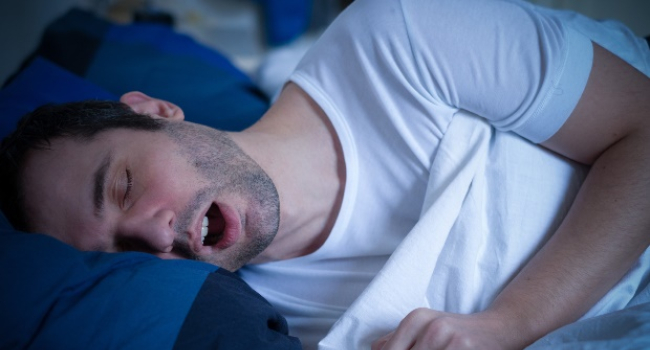- Latest news▼
-
23:55, April 29 Ketodiet improved the condition of patients with schizophrenia and bipolar disorder

-
19:47, April 29 In 64% of COVID-19 survivors, the condition worsens after one year

-
15:41, April 29 ECU: body tilt in patients after stroke was found to be curable

-
13:37, April 29 Blood: blood cancer drugs may be useful in rheumatoid arthritis

-
13:15, April 29 362 cases of measles recorded in Armenia so far in 2024

-
11:48, April 29 3 women diagnosed with HIV for first time after getting ‘beauty injections’ in US

-
15:32, April 26 ESCMID: New method of purifying the air with ultraviolet light could protect world from new pandemic

-
08:43, April 26 Enzymes that convert different blood groups into first group are discovered

-
19:41, April 25 Children’s Hospital Los Angeles and International Center of Professional Development Allergy/Immunology Conference

-
17:31, April 25 JAMA: patient grew long, curly eyelashes because of chemotherapy

-
11:08, April 25 Mpox epidemic declared in Republic of the Congo

-
08:31, April 25 OU: quitting smoking 4 times more likely to cure laryngeal cancer

-
01:20, April 25 Paralyzed man in China writes hieroglyphs using neural implants placed in his brain

-
15:11, April 24 Zombie deer disease possibly linked to hunters’ deaths

-
12:27, April 23 Appetite: Scientists found out the secret to the appeal of large portions of fast food

All materials
Pediatrics: Hypoglossal nerve stimulation implant helps with sleep apnea

Hypoglossal nerve stimulation has relieved sleep apnea in a 4-year-old boy with Down syndrome.
The results of the respective study were published in the journal Pediatrics.
Obstructive sleep apnea affects about 5% of children overall and 80% of children with Down syndrome. In this condition, breathing stops during sleep—often accompanied by snoring, and oxygen deficiency develops, which leads to impaired development of the brain and lungs. In adults, sleep apnea increases the risk of cardiovascular disease.
In May 2023, scientists implanted a device in a 4-year-old boy with Down syndrome and sleep apnea to stimulate the nerve that controls language. The device detects when the airway is blocked and sends an electrical impulse to the hypoglossal nerve, causing it to move forward, thereby opening the airway. The method of implantation has been modified so as not to interfere with the growth of the child.
One month later, the patient's sleep improved, and the severity of apnea decreased by 40%. Now he can sleep about 10 hours a day. Previously, the boy had to sleep with a special CPAP therapy mask for apnea, which he removed up to 15 times a day. In addition, the parents had to wake up to help him. The boy's family noted that he began to wake up easier in the morning, he was able to stay focused longer while studying, and his knowledge of words also improved considerably.
In 2014, a hypoglossal nerve stimulation device was approved in the United States. A year later, its effectiveness and safety have been proven for teenagers, and now—for small children. Removal of adenoids and tonsils is commonly used in order to treat children, but it is not always effective for children with Down syndrome.
Follow NEWS.am Medicine on Facebook and Twitter
- Video
- Event calendar
- Children’s Hospital Los Angeles and International Center of Professional Development Allergy/Immunology Conference
- First Armenian-German Conference entitled “Heart Failure Spring School”
- Allogeneic bone marrow transplant in case of hematological malignancy performed in Armenia for first time
All materials
- Archive
- Most read
month
week
day
- Zombie deer disease possibly linked to hunters’ deaths 1416
- Paralyzed man in China writes hieroglyphs using neural implants placed in his brain 1271
- Mpox epidemic declared in Republic of the Congo 1240
- Children’s Hospital Los Angeles and International Center of Professional Development Allergy/Immunology Conference 1132
- JAMA: patient grew long, curly eyelashes because of chemotherapy 1130
- OU: quitting smoking 4 times more likely to cure laryngeal cancer 1080
- Enzymes that convert different blood groups into first group are discovered 1027
- ESCMID: New method of purifying the air with ultraviolet light could protect world from new pandemic 1000
- 3 women diagnosed with HIV for first time after getting ‘beauty injections’ in US 619
- 362 cases of measles recorded in Armenia so far in 2024 428
- Blood: blood cancer drugs may be useful in rheumatoid arthritis 344
- ECU: body tilt in patients after stroke was found to be curable 343
- In 64% of COVID-19 survivors, the condition worsens after one year 328
- Ketodiet improved the condition of patients with schizophrenia and bipolar disorder 315
- Find us on Facebook
- Poll





